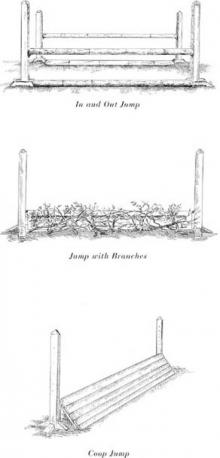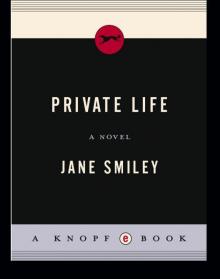- Home
- Jane Smiley
Good Faith Page 7
Good Faith Read online
Page 7
We walked through every room. The two men, I noticed, spoke extravagantly, but they scrutinized the place very carefully and didn’t miss any of the dry rot or the deferred maintenance or the structural wear and tear I knew was there—the place had been on the market for almost a year. David Pollock even reached up suddenly, when we were surveying the backyard from the back porch, and pulled off a piece of siding. I didn’t stop him. What was underneath was better than what was on top, and he saw it and liked it. The house was listed for $89,900, a kitchen and two large rooms down, four bedrooms, a bath, and a sleeping porch up. They offered $81,000, closing as soon as possible. That was at least $4,800 to me, listing agent, buyer’s agent, and broker, for a very short afternoon’s work, and I was sure the seller would take it because the property was starting to deteriorate.
After they signed the papers and left me the number of their hotel, I walked them to their Toronado. David John said, “We always work with the listing agent.”
“And we have so many friends,” added David Pollock.
“With so much money!” exclaimed David John, with a laugh. They got into the car, arranged the dogs, slammed the doors, and laid rubber as they turned into the road.
“Oh, Joey,” said Felicity, “I have had so much fun this afternoon!”
In the end, I kept the Sloans waiting for an hour and a half.
CHAPTER
5
BOBBY CONTINUED to play it safe at home, so I was the one who walked the Burnses through Gottfried Nuelle’s pride and joy for a final inspection. When they arrived at the house, where I had been busily making sure that Gottfried didn’t show up, I was surprised that they seemed utterly unfamiliar to me, perfect strangers. It was odd, because they had been on my mind. Although I hadn’t been paying much attention at the time, I had come to know that Burns and Bobby were friends, that the couple had gone out with the Baldwins to Mercados, that Felicity intended to cultivate Linda Burns. It was hard to tell why.
What I noticed now about Marcus Burns was that he was very neat, almost formal. Even though the weather was hot, he was wearing a light blue shirt, a navy blue tie, and a sport coat. The shirt collar had a starchy sheen and lay smoothly against his neck. The cuffs emerged a half inch from the sleeve of his jacket. The jacket itself, a nubbly buff-colored weave, also looked as crisp as if he had just taken it off the rack. I looked down at his shoes. Tan loafers, as smooth around his feet as if his feet were shoe trees.
He was younger than I was by five years, I thought. Most people who were that much younger than I were baby boomers—casual about dress at the very least, usually wearing jeans. But it was more than expense and style that struck me about Marcus Burns, it was that he gave off the air of being cleaner and better cared for than a man could do for himself, as if he employed another man to do it for him. He was good-looking, too, with a quick smile, an open face, and an easy manner. He was not the sort of guy who, I thought, would appeal to Gordon, or even to Betty. He looked too finished. Gordon liked people who were either loud or eager or a little shaggy, even a little hapless. His cronies were the last guys who could be called smooth. Their characteristic pose was gripping their poker hands, yelling about something, and squinting to avoid the smoke of the cigarettes that were dangling from the corners of their mouths.
Linda Burns was taller than Marcus, nicely dressed too. As we went through the house, she tended to run aground here and there, standing for a long moment with a cabinet open, staring into it, or leaning her elbow against the wall, gazing out the window. Marcus and I walked briskly, inspecting Gottfried’s work and talking about it as critically as possible (which wasn’t very); she dawdled after us, almost silent. Burns was affectionate with her and eager with me. He clearly liked the house very much. In the foyer, for example, he squatted down and ran his hand across the pegged floor, then sat back on his heels a little and surveyed the woodwork: a dark chair rail and a beautiful staircase with turned spiral balusters. On the newel post, Gottfried had set a beautiful wooden globe. The grain of the wood glistened all around in tawny and chocolate striations. Burns ran his palm around it with a sigh.
The striations were repeated in the steps, even though, no doubt, they would eventually be carpeted. I said, “Look at these steps. Gottfried builds everything to be seen, even the things he knows are going to be covered.” The steps were a perfect example of Gottfried’s idea that beauty didn’t cost much; he had taken a few minutes to look through the boards available for stair treads and had chosen interesting ones. “How hard is that?” I could hear him rant, as if I personally had dared him to overlook something.
Burns went up the stairs, sliding his hand up the banister, and turned around on the landing and looked down at me. He put his hands in his pockets and grinned. Linda was wandering around the living room. She said, “Our furniture isn’t nice enough for this place,” but she said it dreamily. Then she said, “We can get rid of it all.”
Normally, the buyers do their last inspection to make sure they know what they’re getting and that everything has been completed to their satisfaction before the closing, but when I heard Linda’s voice from the living room say, as if to herself, “I hope we live here forever,” I figured they were satisfied.
Later, when we went outside to look at the grounds and the garage, they were practically swooning, their arms around each other’s waists, smiling. It was like accompanying someone on their second honeymoon. I moved off a little.
The Burnses’ house stood on a rise facing southeast. The front yard sloped down to Maple Glen Road, and the backyard sloped somewhat less to a little rill that ran off the hump of a good-sized hill to the north. There was a good view down the long valley of the Blue River, a tributary of the Nut. A series of hills crowned with maples receded into the purple distance. One neighbor, across the road, was visible, though the windows of his house were hidden by foliage. The other neighbors, who really weren’t too far away, could not be seen, and a small shopping center at the crossroads of Highway 12 and Maple Glen Road was hidden by a curve, though it was less than half a mile distant. A child, if the Burnses had one, could easily and safely ride a bike to the shopping center and home again. Selway was about five miles in one direction, and Lesterville, which had nice restaurants, two gas stations, several bed-and-breakfasts, and a short shopping street, about three miles in the other. We weren’t far from Darlington Shopping Village, either, if they were in the market for luxuries rather than necessities. In other words, the house had just about everything. I could almost but not quite see myself having lived a different, possibly wiser life, a life that would have led me to this house. I was no less capable than Marcus Burns of appreciating it, and maybe somewhat more capable of taking care of it. As a rule, I was not an envious sort of person—didn’t dare to be, in fact, because my parents had always been quick to note and punish covetousness (along with bearing false witness, taking the name of the Lord in vain, and every other commandment-breaking act)—but I thought I could have slid right into a bit of petty longing if I hadn’t been feeling very good.
So I was standing there, feeling benevolent and avuncular, when Marcus Burns came up to me and said, in an easy and friendly voice, “What about the fence?”
“What about it?”
“There’s no fence.”
“Well, no. I told Bobby to make sure you saw that the seller had rejected the fence contingency before you accepted the counter offer.” I remembered thinking that Marcus Burns could certainly afford a fence.
“I understood the problem was with the style of fence, but that the seller agreed to a white board fence rather than a split-rail fence.”
“The seller was more positive about a board fence, to the degree that he was willing to sell the house knowing that a board fence might someday be erected along the road, but he didn’t agree to put one up.”
“Oh.” Burns seemed surprised.
“I’m sorry if Bobby didn’t make the seller’s position clear. I have
the papers in the car. My advice to you is just buy the house and put up the fence you want.”
“Nuelle’s house that he’s building now has a fence, a split rail. I saw it when I drove by there a couple of days ago.”
This was true. Gottfried’s current project had recently manifested a split-rail fence, and he could certainly have gotten the idea from Burns, though of course the style of the house was Colonial, not Queen Anne. I said, “I understand your position, Mr. Burns, but this is something I wouldn’t really bring up tomorrow at the closing. Gottfried is kind of a volatile guy. To tell you the truth, at our last closing he tried to throw the buyer out the window.”
Burns laughed. This entire discussion had been a genial one. He was friendly, and I felt rather warmly toward him even though I’d hardly had a thing to do with him. He put his arm around my shoulders and bent his head toward mine. He said in a low voice, “Is he a big guy?”
“Big enough when he gets his dander up.”
“You don’t think he would be amenable to, say, arm-wrestling for a fence? We don’t plan to move in for a couple of weeks.” He smiled again. “Just a minute. Do you mind? I want to discuss this with my wife.”
Linda Burns was standing in front of the house, her head tossed back, looking up at the façade and the long veranda that crossed it. Burns went up to her and put his arm around her, turning her away from the house and away from me. After a moment, I saw her lay her head on his shoulder. Then they turned and regarded the front of the property along the road. He stretched out his arm and made a gesture. Then they walked back up the hill to me.
She said, “Let’s ask the builder again about the fence. I’m sure he’ll prefer to accommodate us.”
“In my note to Bobby when this issue came up, Mrs. Burns, I told him that Nuelle intended to put the house back on the market at a higher price if this deal didn’t go through, so what that means is he’s already thinking that he sold the house for too little as it is. He’ll be pretty annoyed to take even less.”
She said, “The confusion seems to me to be a middleman confusion. I mean, even if we look at the papers, and even if we talk to Mr. Baldwin about it, the reality stays the same. We asked for a fence and thought we were getting a fence, and here we aren’t getting a fence even though we’re paying full price. I said to Marcus that it seems to me it’s like going to the store and bringing home a gallon of milk, but when you get home the milk is sour.”
“You did sign the contract, Mrs. Burns. I’m sorry if you didn’t read it.”
She spoke quietly, sadly, shaking her head. “Okay. Okay. I hate that when you get into the you said/I said/you said/I said. Maybe this is the wrong house for us. Maybe this is a sign. Honey, you can deal with these things better than I can.” She gave Burns a squeeze with the hand on his arm and turned and walked away. He looked after her, then he turned to me and said, “She loves this place. I don’t know.”
“You have a lot of money in this place already. You put down ten percent of the purchase price. That’s twenty-five grand right there.”
“Oh, I think she’s just disappointed. I wouldn’t worry about it.” We watched her get into their car. “I’ll work on her tonight.”
“Excuse me?”
“Well, it’s delicate. She likes things to fall into place just so, from the beginning. Have you ever heard the expression, ‘Things begin as they go along’? She’s very touchy about beginnings. Obviously we wouldn’t give up twenty-five thousand dollars for the sake of a fence that would cost maybe five or six hundred.”
“Closer to a thousand, depending on the contractor, but of course.”
“I’ll talk to her. That’s all I can do. I’m sure it will be fine. Bobby, of course, isn’t very experienced. I’m sure that’s been a problem for you from time to time. But he’s a good kid.” We started down the hill toward the car. “And we met his two sisters the other night. Linda liked one of them very much—let’s see—Felicity, it was. They’ve had lunch a time or two since then. They’ve been thick as thieves. I’ll bring that up too.”
When he got into his car a few moments later, I was feeling jealous more than anything else, that Linda Burns had seen more of Felicity since Monday than I had.
When I got home, I called Bobby a couple of times, but there was no answer. I reviewed my options. I could drive over there, but it was a long way, and if he wasn’t there, a drive could be futile. And what would I do when I got there? The Burnses had signed the papers, had initialed the clause wherein they acknowledged that the builder would not put in a fence. If Bobby had misled them in some way, then it would have been orally, and chances were he wouldn’t remember it. I was annoyed, but the deal was a solid one, a legal one, and a good one. Best to eat something and put it out of my mind, which I did.
In the end, given the fence problem, I decided to do the closing myself rather than leave it to Bobby; Gottfried Nuelle customarily took a bit of managing anyway. In the first place, he was always annoyed that he was in some title company’s office rather than on the job. He didn’t like the feeling that a job was unsupervised. One time he had gotten home from a closing to discover that his workmen had put in a slate floor backwards. The pattern in the slates that Gottfried had designed was installed right to left rather than left to right. He subsequently convinced me that the result was disconcerting, like seeing backwards handwriting, rather than soothing, the way it was meant to be. But he also hated for the workmen to be idle, so he began every closing in a frame of mind that was only exacerbated by actually meeting the buyers. When I picked him up for this one, though, he was pretty happy. Over the weekend, he had found a forgotten bin of black walnuts from several years ago in the back of his workshop. He’d spent a few hours Sunday morning driving back and forth over them in his car, crushing them. He’d then scooped them into five-gallon containers and added linseed oil, producing what he called “the stain of the decade.” He planned to apply it to the dining room paneling of the house he was building. As we drove into the parking lot of the title company, he said, “I did this before, you know, but these walnuts are so old, nearly fermented. It’s a much richer color than with fresh walnuts.” Then he clammed up.
The Burnses were waiting for us. No Bobby. Marcus and Linda both waved happily, and Linda came to my side of the car and put her hand on my arm when I opened the door. She said, “I am so excited. This is such a dream come true for me. I feel like this house was built just for me. You’re Mr. Nuelle? You are such an artist. I feel like even if I had told you what I wanted, it couldn’t have come out as nice as it has, because I wouldn’t have known what I wanted as well as you did! Isn’t that amazing? Thank you very much.” She took Gottfried by both hands and looked into his face with great emotion. He looked startled but pleased. Even Gottfried could be softened by flattery.
Marcus Burns was a little more reserved but, it seemed, no less happy. He introduced himself enthusiastically to Gottfried, and Gottfried scrutinized him but seemed placated. We were shown into the conference room at the title company and asked to wait a moment or two for the closing officer. Burns caught my eye and gave me the high sign. I relaxed. Once again the two of them looked perfectly turned out; he had on a pink shirt with a pale glen-plaid jacket, and she wore a yellow linen dress with white around the neck and sleeves. We sat quietly. I sensed Gottfried as a dormant volcano beside me.
Linda said, “You know, Mr. Nuelle, I am so sorry for the confusion.”
“What’s that?” said Gottfried.
I sneezed, which is probably why I didn’t pay attention to this little exchange. At any rate, by the time I’d blown my nose, Gottfried was sitting forward, staring at Linda Burns, who was plowing ahead, though timidly. “It seems like a small thing,” she said. “A few feet of fence is all, and yet I see it as the finishing touch. I mean, what if I went to the store and bought a birthday cake, and the cake was wonderful and the frosting was all creamy and rich, and it had beautiful red roses on it, but it didn’t hav
e Happy Birthday written on it? Or, really, what’s more like it is, it had Happy Birth written on it, but you’d left off the day part. When I got it home, it couldn’t be used for a birthday, could it? No matter how great it was, no matter how good it tasted, it really couldn’t be used for what I’d intended it for.”
I said, “Maybe that’s not quite an appropriate comparison, Mrs. Burns. The house is completely useful—”
“Well, the analogy is not about usefulness really, Mr. Stratford. It’s about getting what you pay for. About wanting something to be complete before you enter into a contract. I just want everything to be perfect, and I don’t feel that it is.”
“You don’t?” said Gottfried. I knew he was thinking about the floors, the moldings, the kitchen cabinets. Perfect was the perfect word for her to use, since he prided himself on perfection.
“No, I don’t. My husband and I spoke about this last night for a long time, and he, of course, was willing to settle, but I just wanted to appeal to you, Mr. Nuelle. I know that Mr. Stratford is being quite uncompromising about this, and holding us to the letter of the contract and all, and I certainly wouldn’t want to lose twenty-five thousand dollars, but I have principles, and I want a split-rail fence along the front edge of the property.”
“Split-rail?” said Gottfried.
“Yes. That’s what seems right to me.”
“Split-rail in front of a Queen Anne?”
“Yes. If I’m going to live there, that’s what it’s going to have to be. I told my husband last night before bed that I would compromise, but I was up all night about it—and about the tile in the powder room.”
“The tile in the powder room?”
“Oh, yes. That’s going to have to come up right away. I can’t even go in there.”
“The tile is off white. Very neutral,” I said.
“It is shiny.”
I looked around the table. Gottfried was red in the face, Linda Burns was staring down at the table but pressing ahead, and Marcus Burns was looking at her with an inscrutable half smile. Just then, Mary Lou, the closing officer, came in with the papers, saying “Good morning, Gottfried, Joe. You must be the Burnses. Okay! Everything looks in order here. The mortgage is approved, of course. I spoke to the savings and loan this morning. Shall we—”

 The Georges and the Jewels
The Georges and the Jewels Pie in the Sky: Book Four of the Horses of Oak Valley Ranch
Pie in the Sky: Book Four of the Horses of Oak Valley Ranch Duplicate Keys
Duplicate Keys Charles Dickens
Charles Dickens Good Faith
Good Faith Private Life
Private Life A Thousand Acres: A Novel
A Thousand Acres: A Novel The Greenlanders
The Greenlanders Ten Days in the Hills
Ten Days in the Hills Gee Whiz: Book Five of the Horses of Oak Valley Ranch
Gee Whiz: Book Five of the Horses of Oak Valley Ranch A Thousand Acres
A Thousand Acres The All-True Travels and Adventures of Lidie Newton
The All-True Travels and Adventures of Lidie Newton Ordinary Love and Good Will
Ordinary Love and Good Will Taking the Reins (An Ellen & Ned Book)
Taking the Reins (An Ellen & Ned Book) The Man Who Invented the Computer
The Man Who Invented the Computer Horse Heaven
Horse Heaven The Age of Grief
The Age of Grief Riding Lessons
Riding Lessons Perestroika in Paris
Perestroika in Paris A Good Horse: Book Two of the Horses of Oak Valley Ranch
A Good Horse: Book Two of the Horses of Oak Valley Ranch Saddles & Secrets (An Ellen & Ned Book)
Saddles & Secrets (An Ellen & Ned Book) Some Luck: A Novel
Some Luck: A Novel Champion Horse
Champion Horse Some Luck
Some Luck Gee Whiz
Gee Whiz Barn Blind
Barn Blind A Thousand Acres (1992 Pulitzer Prize)
A Thousand Acres (1992 Pulitzer Prize) Pie in the Sky
Pie in the Sky True Blue
True Blue A Thousand Acres_A Novel
A Thousand Acres_A Novel A Good Horse
A Good Horse